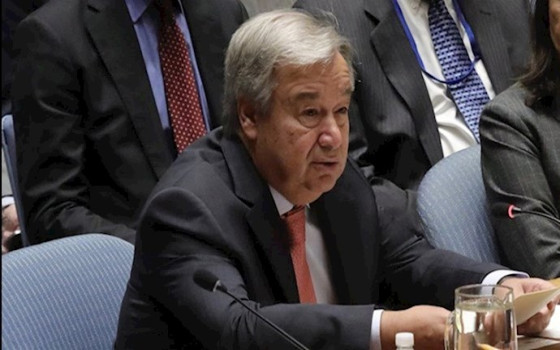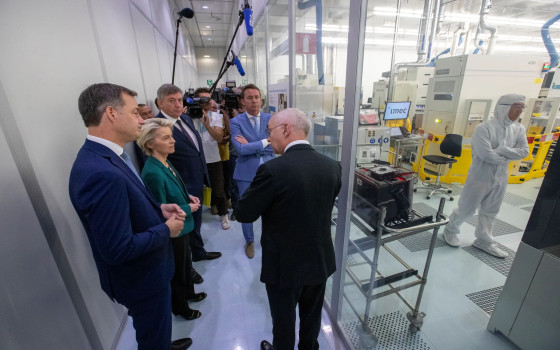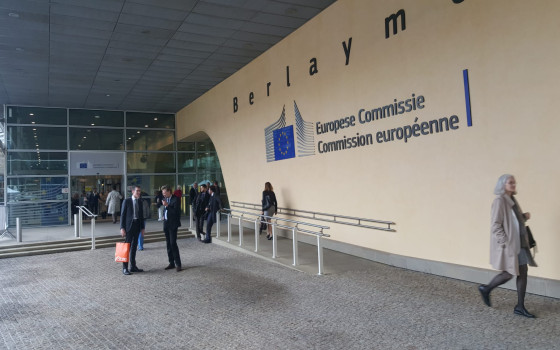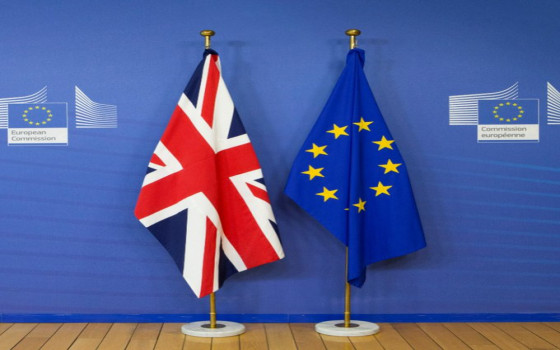UN Secretary-General: The military use of artificial intelligence is a threat to a world in need of peace

- Europe and Arabs
- Monday , 7 July 2025 12:8 PM GMT
Rio de Janeiro, Brazil - New York: Europe and the Arabs
United Nations Secretary-General António Guterres warned against the militarization of artificial intelligence, calling for a multilateral response based on equality and human rights. He stressed the need to involve developing countries in the governance of this accelerating field.
In a speech delivered at the BRICS summit in Rio de Janeiro, Brazil, the Secretary-General explained that artificial intelligence is reshaping economies and societies, warning that the fundamental test lies in how wisely we guide this transformation, how we minimize risks and maximize potential for good.
Peace in Palestine and Sudan
The Secretary-General expressed particular concern about the militarization of artificial intelligence, in a world that needs peace more than ever. According to the UN daily news bulletin on Monday, he called for peace in Palestine, based on a two-state solution, starting with an immediate and lasting ceasefire in Gaza, the immediate and unconditional release of hostages, the free and unhindered delivery of humanitarian aid, and an end to annexation and the devastating violence in the West Bank. He also stressed the need to silence the guns in Sudan, where civilians have suffered greatly, he said.
Artificial Intelligence Scientific Group
Mr. Guterres said that artificial intelligence requires a multilateral response based on equality and human rights, noting that the Charter for the Future calls for building a new architecture of trust and cooperation – starting with the establishment by the United Nations of an independent international scientific group on artificial intelligence. He emphasized that this group should provide impartial, evidence-based guidance available to all Member States.
The Charter for the Future also calls for a regular global dialogue on artificial intelligence within the United Nations, involving all Member States and relevant stakeholders.
In this context, Guterres emphasized that artificial intelligence cannot be a club for the few, but must benefit everyone, especially developing countries, which must have a real voice in global AI governance.
He explained that he would soon present a report outlining innovative voluntary funding options to support AI capacity building in developing countries, and urged the BRICS group to support these efforts. He added, "But we cannot govern AI effectively—and fairly—without addressing deeper structural imbalances in our global system. We are in a multipolar era in which power relations are changing. A multipolar world requires multilateral governance—with global institutions fit for the times, particularly the Security Council and the international financial architecture."
The Secretary-General noted that these institutions were designed for a bygone era, and a bygone world, with an outdated system of power relations, emphasizing that reforming the Security Council is crucial.
Financing for Development Conference
The UN Secretary-General said that the message emerging from last week's Financing for Development Conference in Seville was clear:
Ensuring greater participation of developing countries in global economic governance and its institutions;
Establishing an effective debt restructuring mechanism;
Tripling the lending capacity of multilateral development banks, particularly with concessional financing and in local currencies.
Guterres said that all of this is critical for countries, particularly in the Global South, to bridge the digital divide and fully harness the potential of AI, making AI a powerful driver of inclusive growth and sustainable development. Cooperation is humanity's greatest innovation.
At a time when multilateralism is under threat, the Secretary-General urged us to remind the world that cooperation is humanity's greatest innovation, noting that it begins with trust, "and trust begins with all states respecting international law without exception."
He concluded by saying, "Let us rise to the occasion—and reform and modernize multilateralism, including the United Nations and all its systems and institutions, to make it work for everyone, everywhere."














No Comments Found